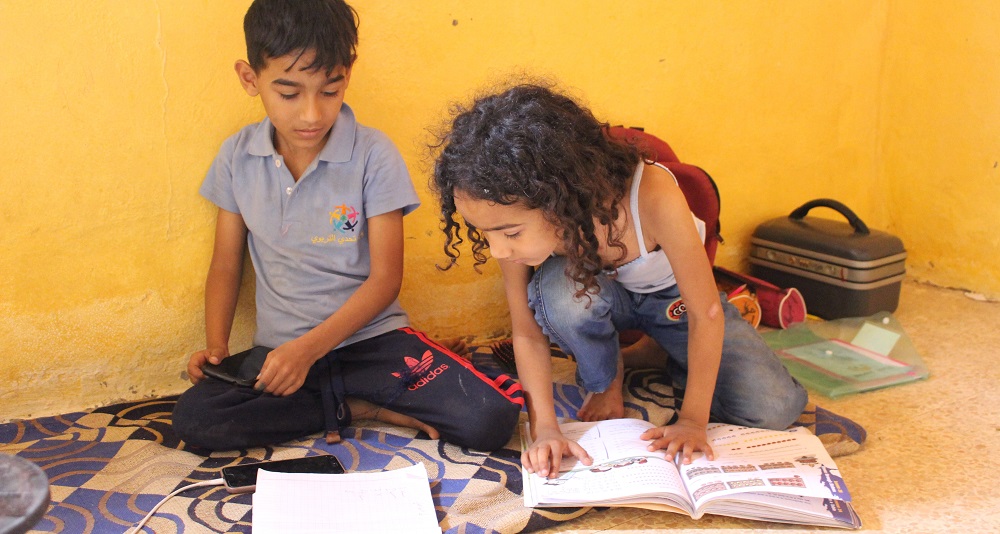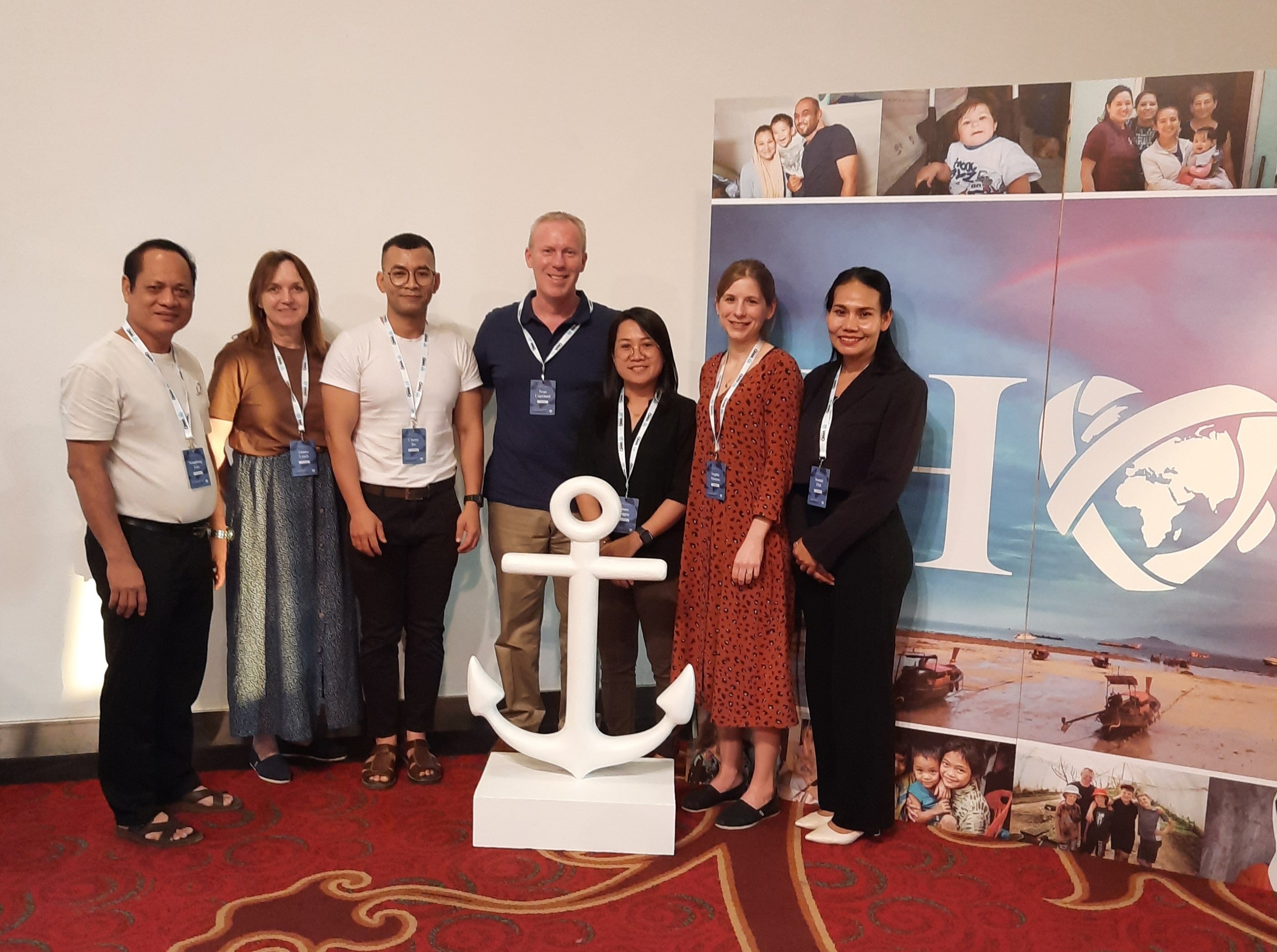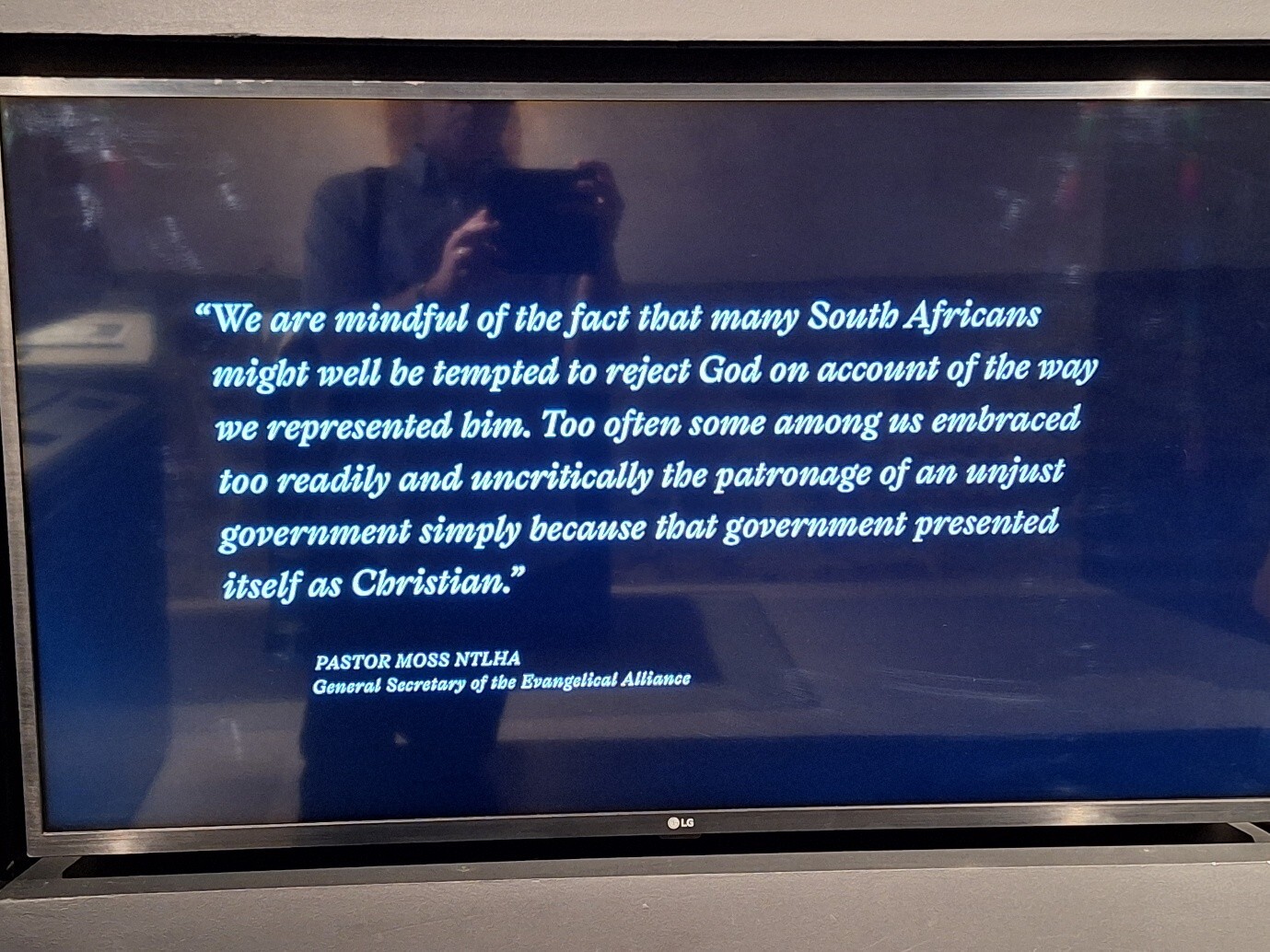
SYRIAN REFUGEES AND THE
CHALLENGES OF DISTANCE LEARNING
The Syria crisis has had a profound impact on the whole of the Middle East but, as a host nation for about 1.5...

Photo: Tearfund Ireland staff with team members of local partner, M'Lup Russey.
Three of our team members flew from Ireland to Cambodia and spent time with our local partner. They were able to go out into the field and learn more about the projects firsthand. Emma Lynch (Church Engagement and Education Manager) and Sophie Moreno (International Programmes Manager) shared some of their thoughts, feelings, and experiences from the visit.
Can you describe the need for our local partner’s work in the community?
Sophie:
Violence against children is a pervasive issue in Cambodia, with over 50 percent of children reporting having experienced a violent incident before the age of 18, and over one third of children aged 13 to 17 reporting witnessing physical violence in their home within the last twelve months1. Children are further at risk from economic exploitation, with 19 percent of children aged 5 to 17 being economically active.
Battambang, where one of M’lup Russey’s offices is located, is a largely rural province, many areas of which have poverty levels above the national average. It is home to some of the most resource-poor and vulnerable children in the country. Many communities suffer untreated trauma from the Khmer Rouge genocide, as well as poverty, malnutrition, illegal migration, and exploitative behaviour such as child labour, physical and sexual abuse, underage sex work, abuse, family violence, and neglect.
Poverty, domestic violence, drug or alcohol abuse, or family disintegration due to a parent’s death or migration are reasons why children living in poverty are prone to being separated from their birth families. As the financial and societal pressure on the family grows, children in these families are at risk of being placed in a residential care institution (RCI)2.
[1] Ministry of Women’s Affairs (2014) Cambodia: Violence Against Children Survey 2013.
[2] This term can include orphanages and children's homes.
How are the partners impacting the community?
Sophie:
M’Lup Russey works on a very grassroots level, and a lot of time and investment go into individuals’s lives: a care leaver who receives mentoring and job skill training, or a parent who becomes part of a Key Community Group and there receives peer support and parenting skills training. However, on our visit, we have been able to witness that the impact is far beyond one individual. Participants in M’Lup Russey’s project seem to carry what they have learned and achieved and how their lives have transformed into their community. They begin to mentor other careleavers and share their own experiences, and hope for a better future. Or they set up their own peer support groups and train others.
We met one mother of two small children who had been part of such a group and learned about parenting and financial skills such as saving. Through that, she became a much more confident mother and started saving small amounts that have enabled her to send her older boy to school (and he’s doing really well there!). Her husband learned that there are other ways to discipline his children, and he now knows the negative effects violence has on children. He has recently become part of the city council and is now advocating for children and child safeguarding on a political level.
What were hoping to learn and experience from the partner visit to Cambodia?
Emma:
I wanted to get insights from partners as to the reality of the situation in Cambodia. Why do so many children’s homes exist in the country? What are the main push and pull factors that continue to see children being separated from their families?
I wanted to meet young adults who had been directly affected, to see how they are now doing, to understand their perspective, how it has impacted their lives, and what they would say to parents who might consider placing their children in a care home because of poverty.
I also wanted to better understand how our partners begin the conversation with families, communities, churches, and children’s home directors about the value of children growing up in families.
What was different than you expected?
Emma:
The complexity of life for young people leaving children’s homes. Many (particularly in Christian residential care homes and orphanages) have their names changed, so their birth certificate (if they have one) and their school registration documents don’t match up. This makes it very difficult for young people to continue their education, as both documents are required to progress to the second and third levels. Our partners spend a lot of time working with young people and the authorities to ensure that young people have their proper paperwork so that they can move on with their lives. A second impact of this is that young people lose part of their identity when their name is changed, which has a tough impact on them.
There is an issue with early marriage, particularly for girls. In orphanages, children never get the opportunity to observe and learn what healthy relationships in the community look like, so they are very vulnerable if someone gives them a lot of attention. Despite any level of education received, it may not benefit them when it comes to being taken advantage of by others. Young people who have aged out of homes in Cambodia are vulnerable to manipulation, exploitation, and even trafficking.
I didn’t expect to hear that youth clubs, set up by our partners in children’s homes and orphanages, many of which are supported by Tearfund Ireland, are so key as a starting point for children’s home directors to see the value of children growing up in family and community. They also serve to prepare the young people for life back in the community and with their families. Young people are spontaneously continuing these groups to raise awareness in their communities and to support one another as they navigate their adult lives.
What was the strongest element of the project? What stood out to you the most?
Sophie:
M’Lup Russey works with directors of residential care institutions (such as orphanages) and takes them on a journey to better care for children. Often times, these directors have the best intentions, see a need in their community (e.g., better education for children living in poverty), and want to address this need. They are unaware that RCIs have bad developmental outcomes for children in their care and that there are much more sustainable and healthy ways to care for children (most of them have living parents and a family!).
M’Lup Russey comes alongside these RCI directors and very gently guides them to understand current best practices, good standards for RCIs, and how to support children in their care better. It’s a very delicate and sensitive matter, and the team at M’Lup Russey is approaching it in a very humble and professional manner.
How did you see God moving in the programme?
Emma:
Meeting the chair of the MRO board and the strong link between her personal faith and the work of MRO, seeing it as God’s call to his people in Cambodia to do more to care for the children he places in their communities to care for.
What was something you experienced that stayed with you after you returned home?
Sophie:
The enthusiasm and passion of the M’Lup Russey team. All of them have such strong personal testimonies and love God and truly love their neighbour. It was so inspiring hearing them dream their vision for children and families in Cambodia and their commitment to this work.
What is something you got to see that you wish supporters of TFI could experience?
Emma:
Meet young people who have lived experience of growing up in an orphanage, mainly as their parents believed they would have better access to a good education and hearing their stories of the pain of being separated from their families and birth communities.
After seeing the team and its work in the community, what hope do you have for the future?
Emma:
I would hope and pray that they would continue to have God’s grace and stamina to continue this challenging work. My hope is that the church in Ireland will connect with the church in Cambodia to do what they can to see children there continue to grow up in safe and loving families.

The Syria crisis has had a profound impact on the whole of the Middle East but, as a host nation for about 1.5...
